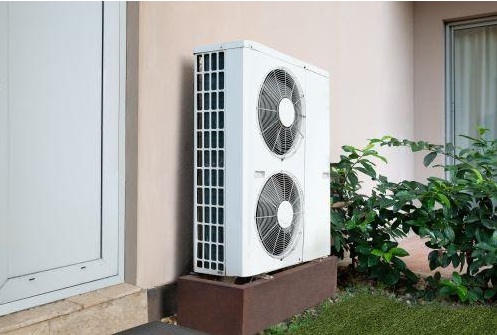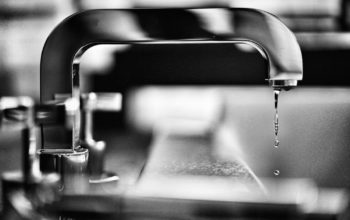Heat pumps provide a great alternative for homeowners looking to break away from more traditional heating and cooling systems. There are plenty of different kinds of heat pumps on the market today, each providing different options depending on the model you might want to use. But they all work off the same principle. It’s one you’re most likely familiar with; you’re probably using it to keep your food cold right now.
Using refrigerant coils to absorb warm air like your refrigerator does to keep things cool, a heat pump can be used to control the temperature in your home. The difference is that your refrigerator vents the heat away from your food, while a heat pump will use that air to warm your home. With our years of experience, we could really go into deep detail here, but let’s just focus on the basics. There are plenty of advantages to installing a heat pump, but only you will know if it’s the right heating solution for your home. If you’re considering installing one, here are the main heat pump benefits you should know about.
Unmatched Versatility
One of the most unique heat pump benefits is the versatility they provide. Unlike a furnace or air conditioner, which can only heat or cool respectively, a heat pump is able to both raise and lower the temperature of the space you place it in. This is all due to the method in which a heat pump works. Instead of generating hot or cold air, a heat pump simply shifts heat from one area to another.
If you want to warm up the room, just set the heat pump to draw heat into it. To cool it down, adjust the heat pump to draw heat out of the room. With the versatility of a heat pump, you’ll be able to adjust your room temperature any way you like.
Highly Energy-Efficient
A major heat pump benefit is their high energy-efficiency. Again, the key to this lies in the mechanics of the device. Other home heating and cooling implements need to generate their own source of hot or cold air, which can be extremely energy-inefficient. Whether you’re using electricity, natural gas, or oil, you’ll only get so much energy out of the fuel you put in. On top of that, they then need to expend further energy to spread the hot or cold air throughout your home.
A heat pump, however, only needs to expend the energy necessary to move heat from one space to another. By circumventing the need to generate your climate, you can massively increase the energy-efficiency of your home.
Cheaper to Run
Since a heat pump is more energy-efficient than a traditional furnace or air conditioner, it also allows you to save a sizable amount of money when it comes to your energy bill. When utilized properly, a heat pump can achieve the same results as a conventional furnace or air conditioner for a fraction of the energy. By implementing a system that significantly reduces the energy you’re drawing from public utilities, you’ll end up saving money in the long-term. It’s worth mentioning that, yes, heat pumps can be a bit pricey to install. However, the savings in the long run can make the purchase worthwhile.
Reduce Carbon Emissions
Cutting back on energy doesn’t just save you money, either. By using less energy, you’ll also be able to help reduce your carbon emissions across the board. It’s an appealing heat pump benefit for homeowners interested in making their household run as greenly as possible, and with the right model, you can really cut back on your environmental impact. Cutting back on oil, natural gas, and electricity reduces the carbon you’re responsible for putting into the air. If you’re passionate about the environment, a heat pump might be the perfect solution for your home.
More Comfortable Indoor Environment
Depending on your climate, you may find your indoor air quality varying wildly. Whether it’s the height of summer and your home is so humid it feels like living in soup or the dead of winter when the air is dry enough to keep a mummy preserved, the humidity in your home can strongly affect your comfort level. Traditionally, adding heating or cooling can add to your humidity problems. Running a conventional furnace for too long can suck all the moisture out of your air, while some air conditioners don’t do anything to help control the cloying summer air.
There’s good news, though: it doesn’t have to be this way. Another heat pump benefit is the ability to keep your humidity at a comfortable level. A heat pump won’t dry out your air as a gas furnace might, and it can help dehumidify your home when you need it to cool things down. With a heat pump, you’ll be able to keep both the temperature and the humidity at a comfortable level.
Safer Than Gas Furnaces
If you’ve ever lived with a gas furnace, you’re probably aware of the dangers they can present. Once you know that gas leaks are possible, you may find yourself sniffing at any strange smell in the air. They also present the rare, but possible, danger of a fire or explosion within your very home. Sure, it’s highly unlikely with modern units that you’ll ever run into either a leak or explosion, and with carbon monoxide detectors and regular maintenance, you can minimize the risks, but it’s hard to forget that it’s there.
With a heat pump, you won’t have to worry about any of those dangers. Since heat pumps utilize electricity and not gas, you won’t have to worry about any of the problems a gas system can develop. With plenty of other heat pump benefits to consider, it might just be the cherry on top.
Heat pumps have made leaps and strides since their invention, making them perfect for some homes. If you’re still unsure whether a heat pump is the right system for you or you’re just interested in knowing more specifics about the pros and cons, feel free to get in touch with Entek. Our knowledge and advice are at your disposal.


